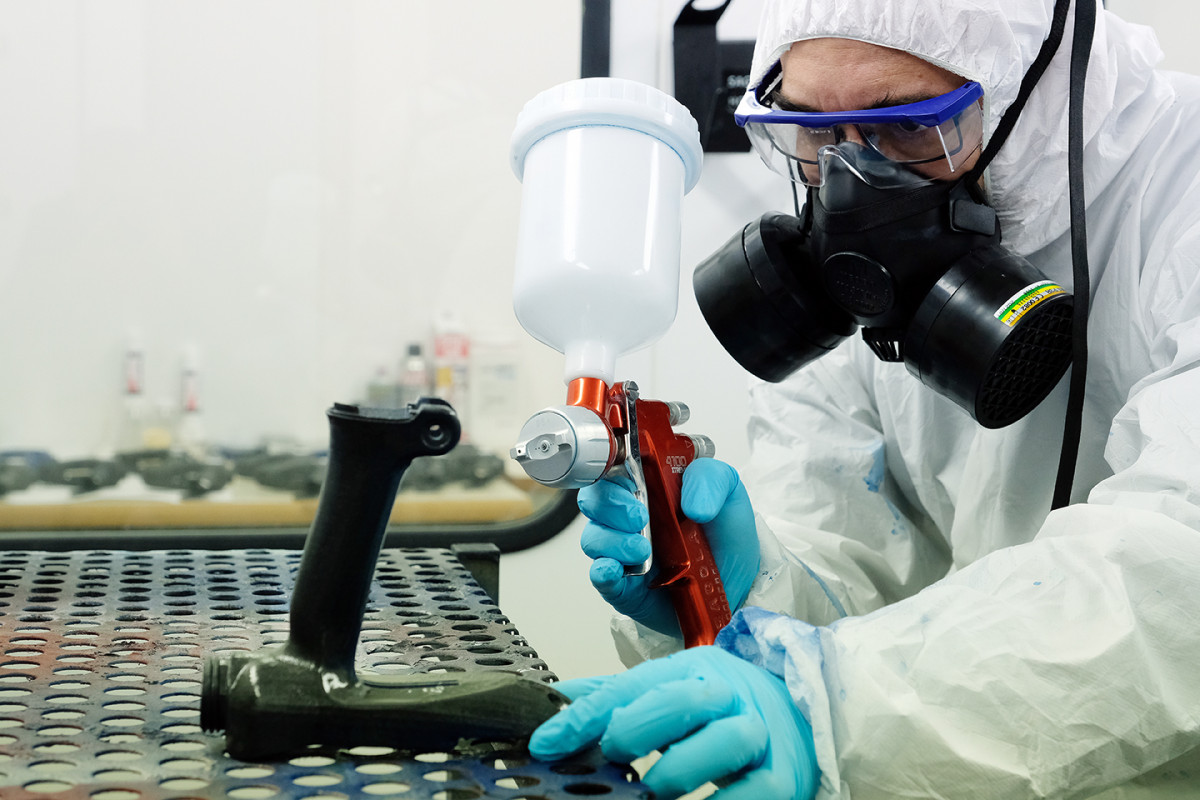David Amantia (Leitat): "We work on projects to improve the automotive production process."

Leitat, a century-old technology center, has one of its most representative fields in terms of innovative initiatives in the automotive industry. It deploys its capabilities in various fields, including emerging trends such as green hydrogen, as David Amantia, Head of the Department of Applied Chemistry and Materials, explains. Interview published in AutoRevista 2.400
Lea esta entrevista en castellano.
AutoRevista.- What does it mean for Leitat to participate and promote technologies such as renewable hydrogen in projects like H2ENRY? What specific value does Leitat contribute to this project?
David Amantia.- Leitat's participation in the H2ENRY project empowers the center in training researchers and in gaining knowledge of advanced technologies for generating green hydrogen, both through solid oxide electrolysis, photoelectrochemistry, and the combination of bioelectrochemical reactors with dark fermentation.
In addition to these technologies, Leitat also develops hydrogen filtration and purification systems with polymer membranes, enabling the production of high-purity green hydrogen.
AR.- What future applications could green hydrogen have in production processes across the value chain of industries such as the automotive industry and other compatible industries?
D.A.- In production processes across the automotive industry value chain, green hydrogen could be implemented in steel production to decarbonize it. This would involve replacing coal in iron ore reduction with green hydrogen, eliminating CO₂ emissions from the process. Furthermore, it could also be used for heat treatment and smelting, using it in industrial furnaces instead of natural gas or coke.
Furthermore, green hydrogen is being considered for use in fuel cell electric vehicles (FCEVs), i.e., trucks, buses, and cars that can use hydrogen as a power source, reducing CO₂ emissions.

AR.- Within the multiple disciplines Leitat addresses (new materials, advanced manufacturing, digitalization, robotics, etc.), what projects are you working on in the automotive (design, development, and manufacturing) and mobility sectors?
D.A.- Leitat is working on several types of projects, covering various areas of the automotive production value chain. We work on projects ranging from developing new batteries for electric vehicles and their recycling to developing materials for more sustainable automotive parts, such as replacing glass fibers with natural fibers to improve the recyclability of these composite materials. Due to the multidisciplinary nature of the center, we also work on projects to improve the automotive production process, such as optimizing the manufacturing of tools used in body sealing processes, reducing manufacturing time and costs.
AR.- In AutoRevista, we recently published a report on MOVEM, as an example of collaboration between clusters and entities with very diverse profiles toward new advances in automotive and mobility in Catalonia. Is Leitat participating in this initiative? If not, how does it collaborate on innovation projects with companies or other technology centers?
D.A.- Leitat collaborates with companies and other technology and research centers through three types of projects: private projects in which one or more companies in the value chain can participate; national projects with Spanish public support involving Spanish companies in the sector and technology centers; and finally, European applied research projects with consortia bringing together both companies and research centers from across Europe.
AR.- Where do Leitat's innovation foundations lie, and how is it preparing for the future?
D.A.- Leitat is the oldest technology center in Europe, with more than 100 years of history and a benchmark at the national and European levels. It has a team of more than 400 professionals, experts in applied research, technical services, and management of technological and innovation initiatives. Leitat's main mission is to become a tool to improve the competitiveness of the country's companies through innovation and technology transfer. Leitat contributes social, industrial, economic, and sustainable value, offering comprehensive solutions to multiple sectors and areas: health and densification, development of new materials, eco-sustainable production, occupational health and safety systems, waste recovery and natural resource utilization; industrial interconnectivity and digitalization; green energy and maximizing energy efficiency. Leitat develops R&D&I projects for companies and businesses.

El Rey Felipe VI ha recibido en audiencia, en el Palacio de la Zarzuela, a destacados representantes del sector de la automoción miembros de la junta directiva de ANFAC, y de Automobile Barcelona, el Salón Internacional del Automóvil de Fira de Barcelona, con motivo de su 43ª edición, que se celebrará del 9 al 18 de mayo de 2025 en el recinto ferial de Montjuïc de Fira Barcelona.

El pasado 23 de abril se entregaron los Premios Galería de la Innovación en el marco de Motortec 2025, que se está celebrando en Ifema Madrid hasta el próximo 26 de abril. Un total de 33 empresas del sector presentaron 41 propuestas (cifras récord en la trayectoria de estos galardones), que fueron evaluadas por un jurado especializado en I+D+i, y respaldados por Sernauto.

El número de nuevas matriculaciones en Europa (E29) del modelo aumentó un 18% en comparación con el trimestre anterior.

Renault Group ha anunciado que 2025 será un año crucial en el desarrollo de su estrategia en India. Esta nueva dinámica se demuestra con la adquisición del 51% restante de su fábrica de Chennai a su socio Nissan, y la inauguración de su mayor centro de diseño fuera de Francia, también en el mismo emplazamiento..

En el primer trimestre de 2025, las matriculaciones de automóviles nuevos en la UE disminuyeron un 1,9% en comparación con el primer trimestre de 2024, según fuentes de ACEA.
